Are you seeking the perfect way to request an academic reference? Crafting a well-structured letter can make all the difference in securing that recommendation you need. In this article, we'll explore essential tips and guidelines to help you compose a polite and effective reference request. So, let's dive in and discover how you can enhance your chances of getting a glowing endorsement!

Clear Subject Line
An effective academic reference request should begin with a clear subject line that directly communicates the purpose of the email. For example, "Request for Academic Reference for Graduate School Application" provides immediate context to the recipient. This allows professors or mentors to promptly identify the nature of the request, making the communication more efficient. Including specific details in the subject line such as "for Fall 2024 Master's Program" can further clarify the timeframe and relevance of the reference, demonstrating the sender's organization and consideration. A concise and informative subject line sets a professional tone, encouraging a positive response from the recipient.
Formal Salutation
A formal letter requesting an academic reference should begin with a respectful salutation that addresses the recipient appropriately. For instance, if the individual is a professor, the salutation could be "Dear Professor [Last Name]". If the person holds another academic title, such as Dr., it could be "Dear Dr. [Last Name]". Including the full name and title ensures acknowledgment of the individual's expertise and position within the academic community, which is crucial in maintaining a respectful tone in academic correspondence. This initial greeting sets the stage for a courteous request for assistance in obtaining a reference for further academic pursuits, such as graduate school applications or scholarship opportunities.
Brief Self-introduction
I am a graduate student currently pursuing a Master's degree in Environmental Science at the University of California, Berkeley, focusing on sustainable development and climate change mitigation strategies. With a Bachelor's degree in Biology from the University of Texas at Austin, I have gained a strong foundation in research methodologies. I have actively participated in various field research projects, including a habitat restoration initiative in California's Sierra Nevada mountains. My goal is to enhance ecological resilience in urban areas through innovative strategies.
Detailed Request
An academic reference request typically involves reaching out to a professor or advisor who can provide insights into a student's abilities, achievements, and character. The request should specify the program or job application (for instance, a master's degree in environmental science at Stanford University), the deadline for the reference submission (often within two to four weeks), and pertinent details about the student's experience (such as completed projects, research work, or presentations). It's beneficial to include information on the relationship with the referral writer and any qualities or accomplishments to highlight, such as leadership in undergraduate studies or contributions to collaborative research. Providing a resume or personal statement can also aid in crafting a tailored recommendation. Ensure to express gratitude for their time and consideration.
Deadline and Contact Information
A well-structured academic reference request is crucial for securing support from a faculty member. Important details such as the deadline for submission (often a specific date, e.g., April 30, 2024) are essential to communicate, ensuring the reference writer has adequate time for crafting a thoughtful recommendation. Additionally, clear contact information, including the recipient's email address or submission portal link (e.g., university application website), helps streamline the process. Providing context about the program or opportunity, such as a graduate program at Stanford University or an internship with a research institute, adds significance, allowing the faculty member to tailor the reference accordingly.
Letter Template For Academic Reference Request Samples
Letter template of academic reference request for graduate school application
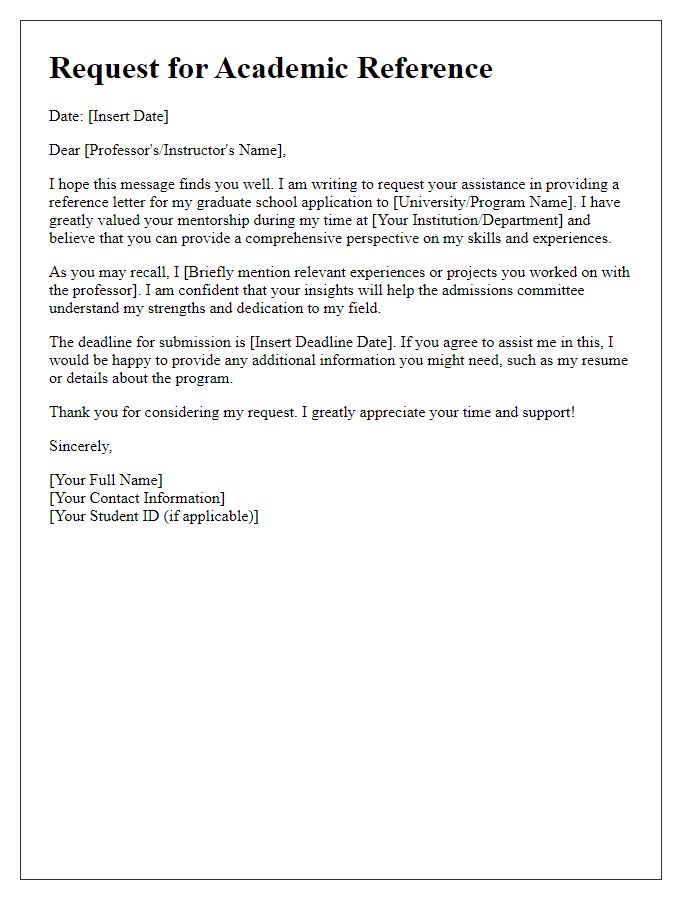
Letter template of academic reference request for scholarship consideration
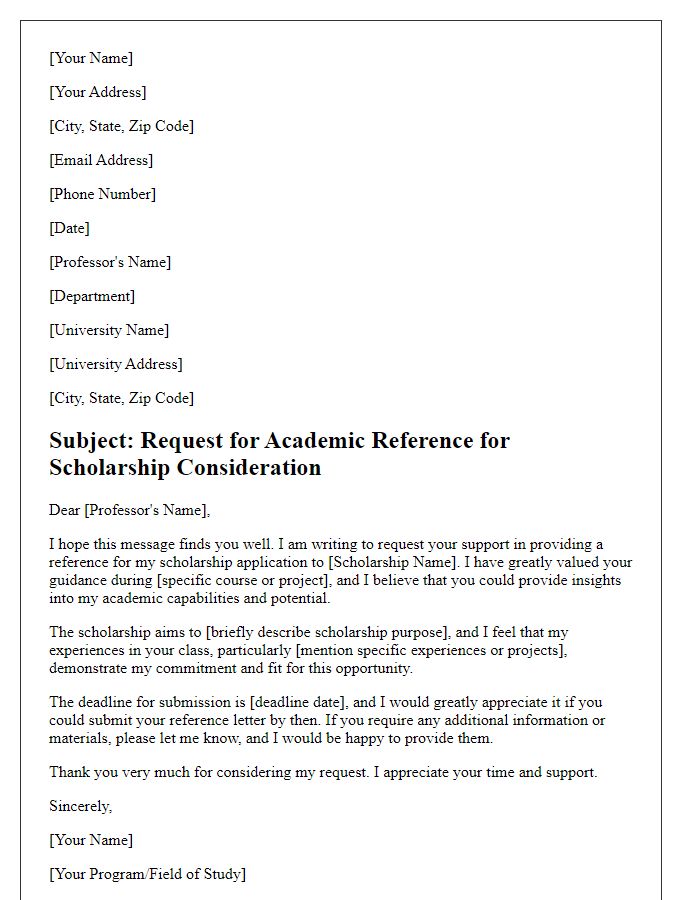
Letter template of academic reference request for internship opportunity
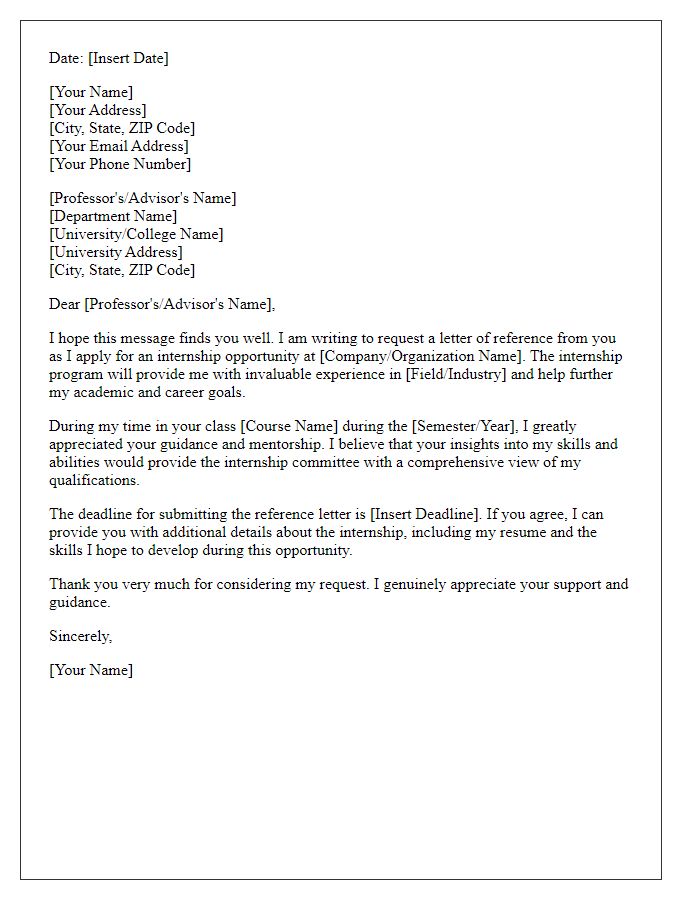
Letter template of academic reference request for professional certification
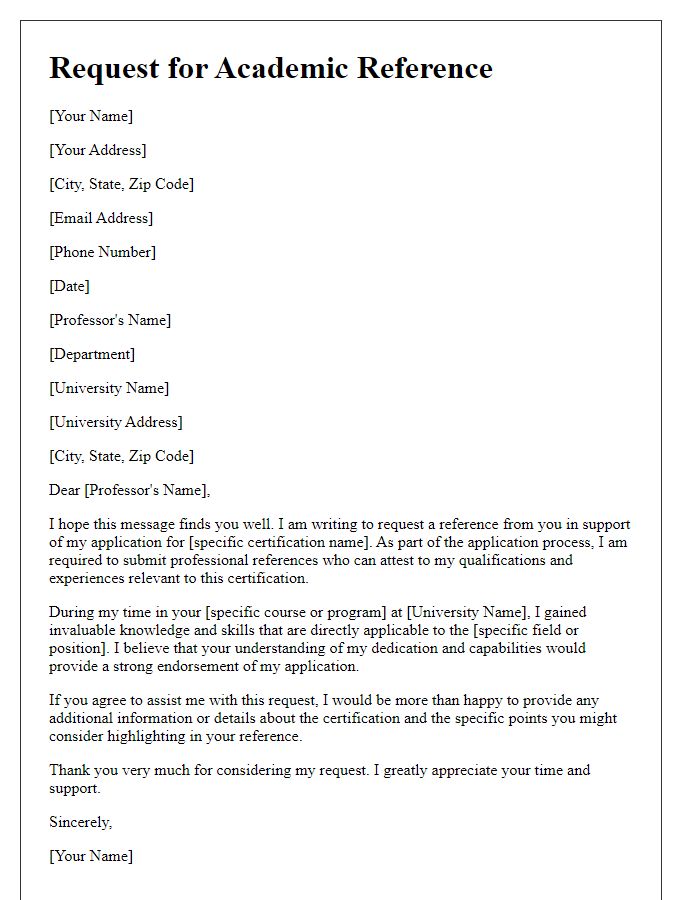
Letter template of academic reference request for fellowship application
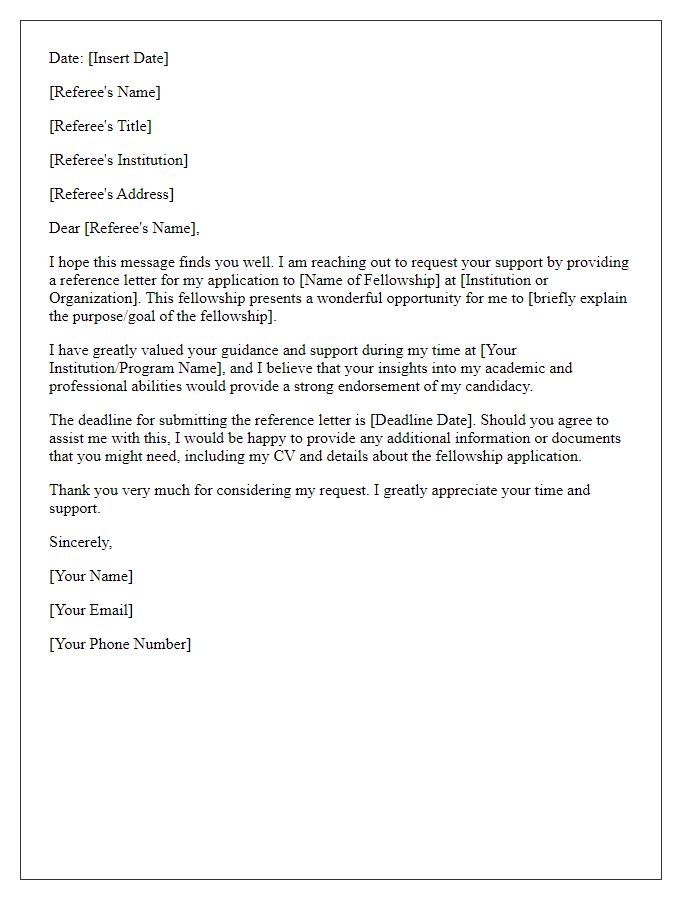
Letter template of academic reference request for teaching assistant position
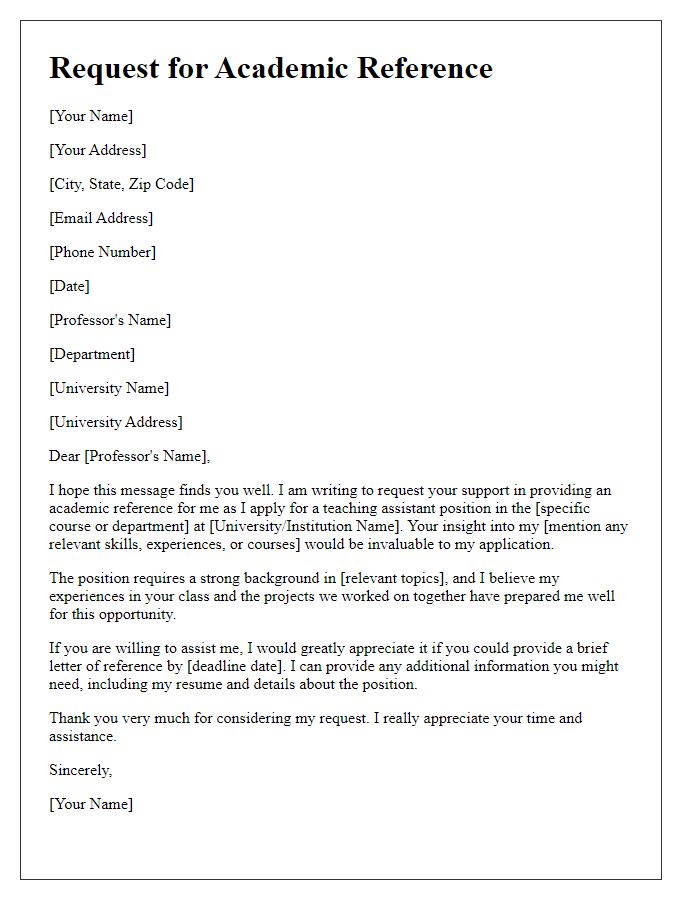

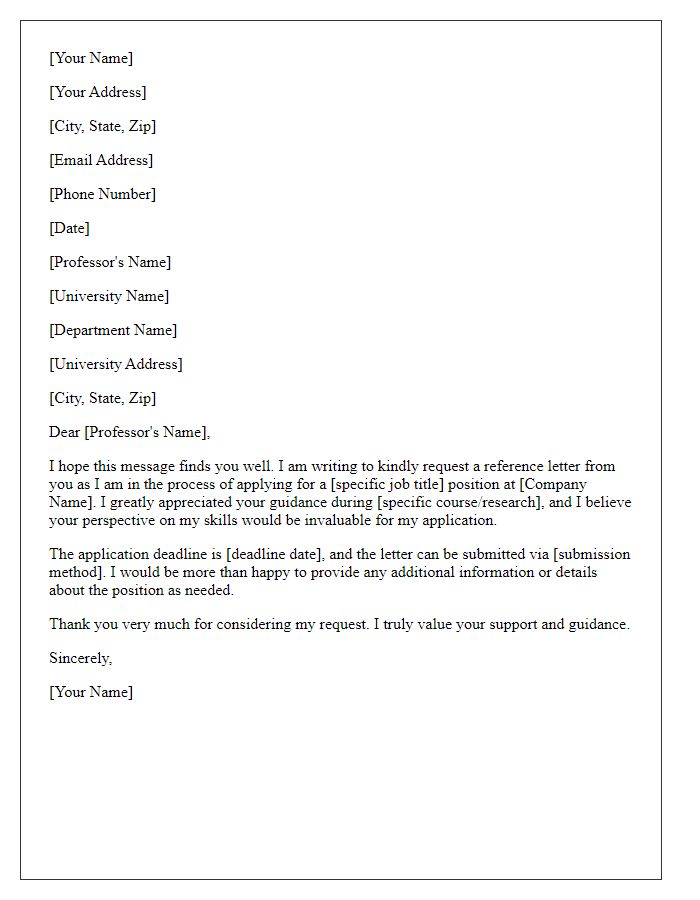
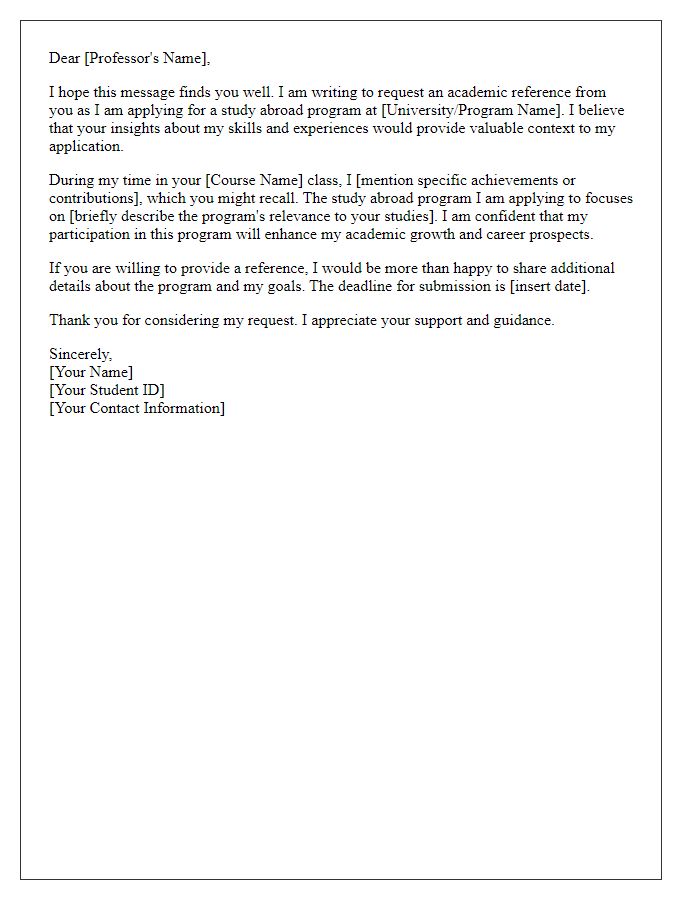
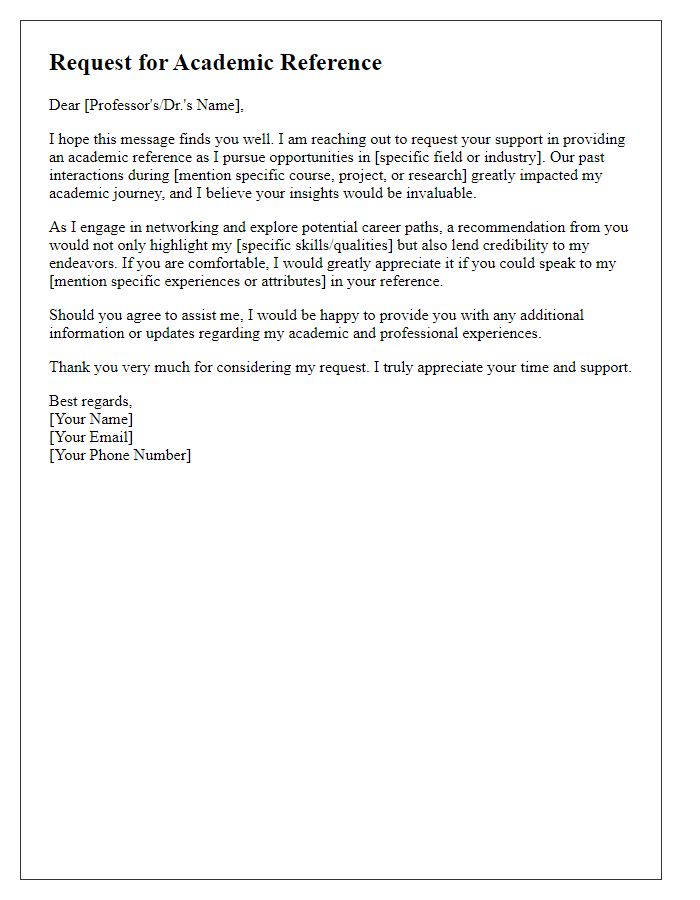
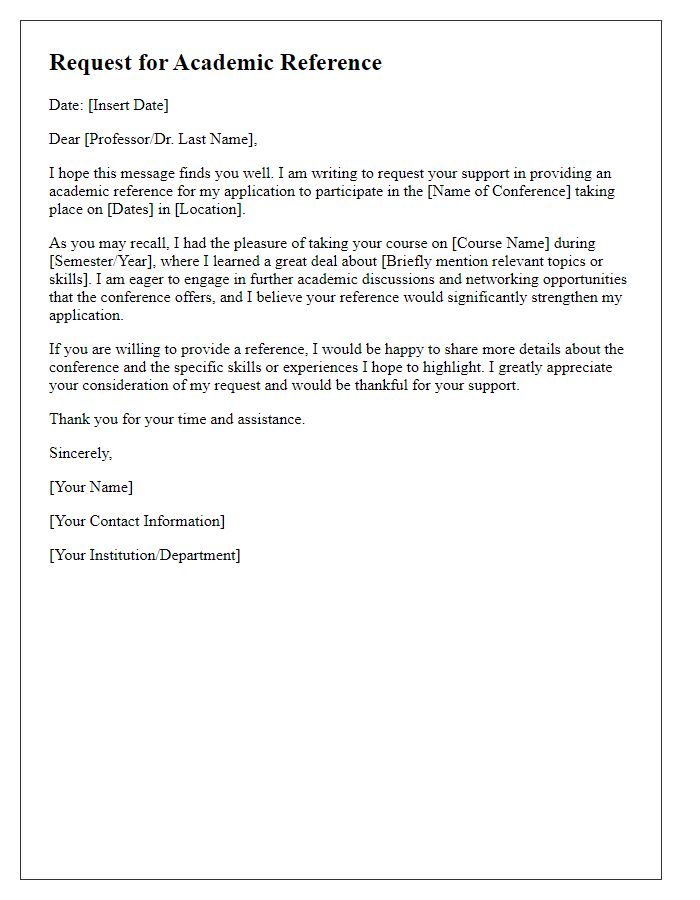


Comments